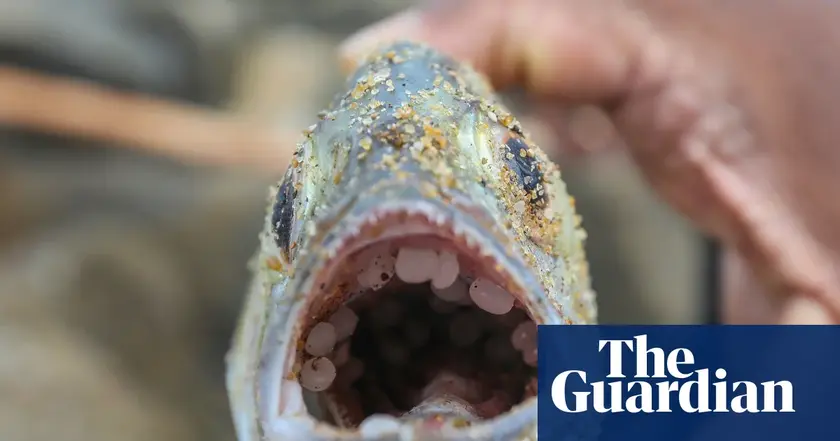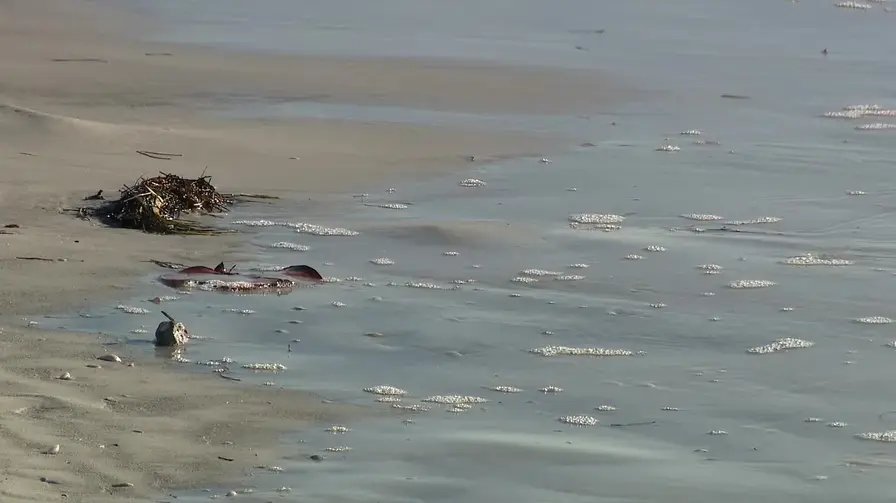T4K3.news
Nurdles threaten Kerala coast status update
Millions of nurdles have washed ashore after a container ship sank off Kerala, sparking questions ahead of global talks in Geneva.

Millions of plastic nurdles washed ashore after the MSC Elsa 3 sank off Kerala, exposing global gaps in regulation as talks in Geneva seek a plastics treaty.
Nurdles threaten Kerala coast as spill cleanup drags on
On May 25 the Liberian-flagged MSC Elsa 3 sank about 14 nautical miles off Kerala, carrying 77,000 sacks of nurdles. A long oil slick from the vessel was partially tackled with aircraft dispersants and salvage teams sealed tanks to prevent leaks. By July only about 7,920 nurdles had been recovered from the 71,500 sacks onboard, leaving millions of pellets to drift ashore along the Arabian Sea coast as monsoon surges intensified cleanup difficulties.
Volunteers and local fishing communities report nurdles littering beaches and fishing nets. The pellets are lightweight and almost impossible to recover, and they act as carriers for toxins, threatening wildlife and potentially affecting seafood safety. The spill has worsened economic hardship for fishing families who already face declining catches and climate driven storms. Kerala has filed a compensation claim against MSC, while the shipowner counters say the case should be heard elsewhere. Globally, pellet spills raise questions about regulation and accountability in the plastics supply chain, a key issue at the UN talks in Geneva.
Key Takeaways
"The nurdles haven’t just polluted the sea they’ve disrupted our entire way of life"
Ajith Shanghumukham on local impact
"These spills expose the transboundary nature of pellet pollution and lack of enforceable global standards"
Dharmesh Shah from the Centre for International Environmental Law
"The clean-up could take up to five years"
Sekhar L Kuriakose, Kerala State Disaster Management Authority
"Because pellets are not treated as hazardous they are shipped like any other cargo"
Amy Youngman, Environmental Investigation Agency
The Kerala spill exposes a gap in global governance. There are no binding rules that prevent pellet loss or require carriers to report spills. Pellets are treated as ordinary cargo, not as hazardous material, which weakens accountability for cleanup costs and damages. The incident also highlights the political and economic undercurrents in the Geneva talks, where nations and firms debate who should pay for prevention and repair. Yet the human cost is clear: fishing communities face lost income and long cleanup timelines reflect the limits of regulatory enforcement.
Highlights
- Pellets drift longer than the ships that lose them
- We need global rules to govern plastic pellets
- This spill tests the plastic treaty in Geneva
- Families lose livelihoods as a spill spreads
Political and financial risk tied to pellet spills
The Kerala nurdle spill tests regulatory frameworks and raises questions about liability, compensation, and how to prevent repeats. Government budgets strain as cleanups drag on and international talks stall amid disagreements.
A chapter in global accountability is being written with this spill.
Enjoyed this? Let your friends know!
Related News

Health alert issued for Gulf Coast Vibrio cases

Kremlin presses Donetsk surrender in ceasefire offer

Dinosaur fossil auctions raise alarm

Trump signals peace talks with Russia ahead of Alaska summit

macOS Tahoe adds 15 new screen savers

Fed rate cut pressure grows after Bessent remarks

Putin's ceasefire demands test Western unity

Ukrainian drone strikes oil depot in Russia
